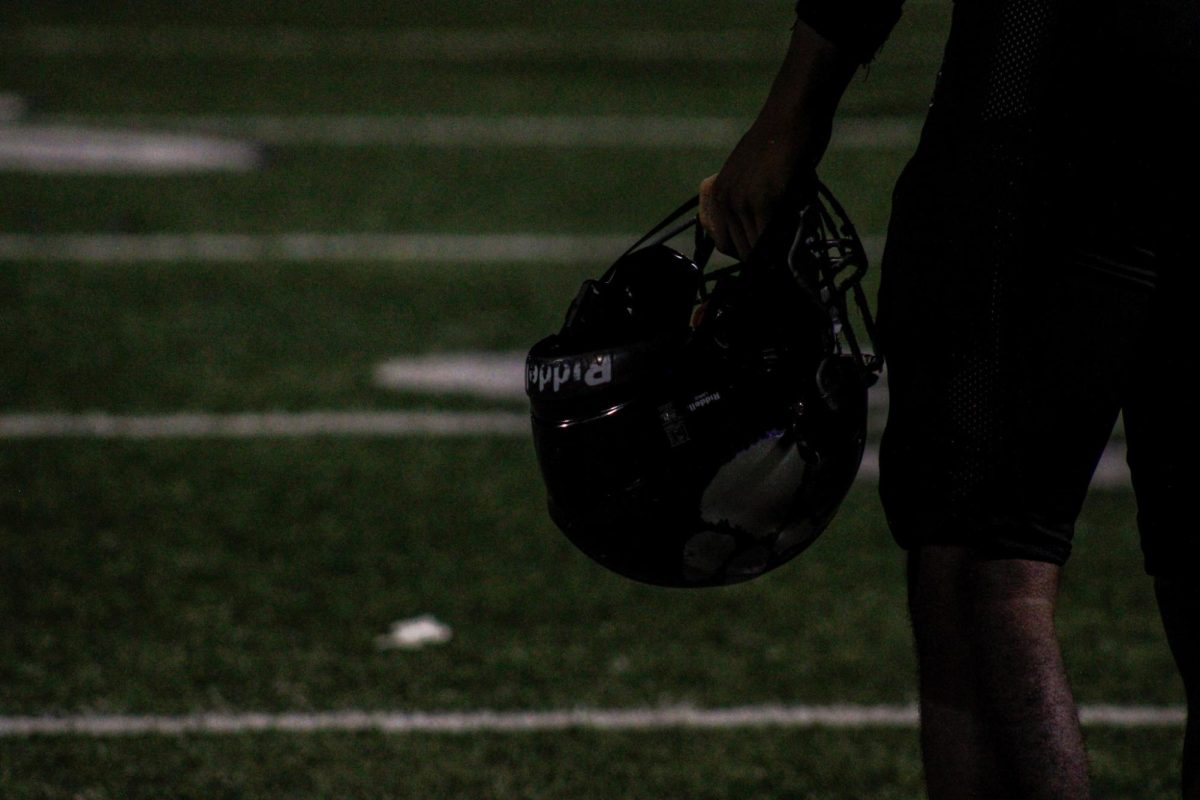“Mental health matters,” until it’s an athlete struggling on the field, expecting to push through the pain to stay off the bench.
Early morning training.
School at 8:30 a.m.
Practice until late at night.
Homework is waiting at home.
SAT prep tutoring session to finish off the night.
This is a day in the life of many student-athletes. Student-athletes are under continuous pressure that swarms them not only on game days but in the classroom as well. They have to maintain passing grades while also maintaining a social media presence for recruiting efforts, attending practices, and trying to have a life outside of school and sports. All of this pressure can be a lot for student athletes, and it often takes a toll on their mental health.
Taking care of their minds not only protects student athletes as individuals but can also strengthen their abilities to perform on and off the field.
According to the American College of Sports Medicine, “Mental health problems are one of the greatest contributors to the global burden of disease among young people. Half of all mental health problems have their onset before the age of 14, and the personal and social costs of such problems can last decades.”
The pressure student-athletes face can be overwhelming. Many student-athletes experience mental exhaustion and think it’s normal because they have so much on their minds and to-do lists. However, this is not normal. Many student athletes aren’t in the correct mental state if they are hoping for an injury just so they don’t have to go to practice, because it would give them the break they so badly need.When the athletic trainer can see that there is an injury, their advice is to sit out and rest, but no one can see an athlete’s mental health. They don’t get the advice to sit out. Instead, they have to push through because this is the lifestyle they have chosen.
Their hearts shouldn’t be racing with anxiety if they are one minute late to a 6 a.m. practice because they were up until 2 a.m. studying for an AP calculus test that they still don’t feel prepared for. So they push down that anxiety they feel because they were late to practice, and now their whole team is mad at them because they have lines.
This is not normal; it’s their brain crying out for help that they need to focus on themselves.
If a student athlete doesn’t properly focus on their mental health, their passion for the sport can start to dim, and eventually, they may lose all the hard work and dedication they have put into the sport because they feel as if they never want to step on the field again. Being a student athlete can be a highlight, but losing themselves over a sport shouldn’t be happening. Every day, student athletes strive to be perfect on the field or in a classroom, but perfection is not a possible standard to achieve. If a student-athlete does not realize this, it can lead them to losing confidence and the drive to achieve.
Mental health should not be associated with weakness. To appear weak is often the last thing student athletes want to feel, but needing a break is not weak.
“As an athlete, hard work should feel challenging but sustainable. You’re pushing your limits while still maintaining proper technique, listening to your body, and allowing time for rest and recovery,” said Peer Counseling advisor Ms. Kelsi Trautwein. “Pushing too far looks different. Pain that lingers or sharpens, injuries that don’t heal, overwhelming fatigue, or mental burnout. A good rule of thumb that I like to share with my athletes is, if the effort builds you up and leaves you stronger, that’s hard work. If it consistently breaks you down, physically or mentally, you’re pushing past a healthy boundary.”
The culture of athletics preaches “It’s about the grind.” Student-athletes hear this almost every day, but with this mindset, athletes find it hard to differentiate between working hard and pushing themselves too far.
“Recent research shows that about 30% of female student athletes and 25% of male student athletes report feeling anxiety. Around 1 in 3 college athletes report experiencing mental health concerns such as depression, anxiety, or burnout, but only about 10% of them reach out for support,” Trautwein said. “At the high school level, the numbers are similar. The American College of Sports Medicine has reported that student athletes face unique stressors, and they are less likely than their non-athlete peers to seek help when struggling. These statistics remind us that while athletics can be a source of strength and community, athletes also need to know it’s okay to step back, ask for help, and make mental health a priority.”
This issue isn’t just for a student athlete to worry about; it should also be for people around them. They can’t physically or mentally deal with this alone. Student athletes spend more than half the day with either coaches or teammates. Shouldn’t they feel comfortable talking to them about their mental health?
In an article on the NCAA website Charlie Henry shared that, “More than half (53%) reported that coaches take mental health concerns of their student-athletes seriously.”
Many coaches and athletes have a connection and can talk about serious issues like mental health, but on the downside, there are still about 50% of athletes who don’t have that connection and don’t feel comfortable confiding in their coach about their problems. A lot of the time, coaches are not helping their athletes’ mental health because they’re pushing mottos such as, “If there’s a will, there’s a way,” and “The best don’t rest. Unless you puke, faint, or die, keep going.” Athletes are taking this athletic culture that their coaches preach seriously, while it takes a toll on their mental health and grades.
“A coach can affect players’ mental health through their actions and their verbal delivery. Some coaches aren’t aware of how their own energy or criticism can cause players to overthink and underperform,” junior Lyric Kelly said. “As athletes, especially student athletes, we can bottle up a lot of our feelings unhealthily due to our busy schedules and scattered brains. However, speaking to others and opening up when things get too complicated or stressful can help ease the stress created from hours of dedication to multiple things.”
Athletes preach being together and having a connection on the field. It’s time to take that mentality off the field and check in on your teammates. If they need to talk, then let them talk. Coaches and teammates can be active listeners. Student-athletes need to take time for their mental health. Mental health matters especially when it’s an athlete struggling on and off the field.















